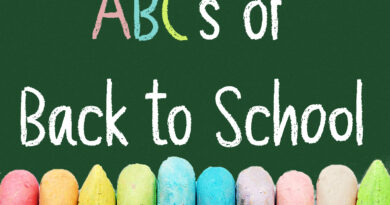How Much is Too Much? Balancing Advanced Academics and Student Interests
 By JOHNA UNDERWOOD
By JOHNA UNDERWOOD
Since the pandemic, much of the American workforce has been reconsidering their work-life balance. It might be time for students and parents to have the same conversation about advanced academic courses, involvement in school activities, work and other interests outside of school. Even before the pandemic, many families with busy students asked “how much is too much?”
Students who are planning to attend colleges and universities often feel they must take all the advanced courses their high school offers. But is this truly the best way to prepare students for college and life after high school? The answer is, frustratingly, it depends.
There are financial benefits to taking advanced classes for college credit. Students can often take these courses for little to no cost, through their high schools. This allows students to gain many college credit hours for a significantly lower rate than they might pay at a competitive university. Graduating high school with multiple college credit hours may also reduce the cost of advanced degrees and increase the likelihood that students will attain those future degrees.
There are also intellectual benefits to taking advanced classes. Tackling the rigorous coursework can teach students how to handle the stressful workload they will likely en-counter in later studies. These courses often allow students to explore subjects of interest in more in-depth and nuanced ways. The resulting discussions and discoveries may spark or confirm a student’s passion for a specific career path.
However, these classes are challenging. Students may feel overwhelmed by the amount of work required. They may feel stressed out by stringent academic expectations. Or they may struggle to find time for other fulfilling activities.
Additionally, students and parents should also be willing to do their research into the requirements of specific degree programs a student may want to pursue after high school. What kinds of courses and scores different universities accept, and for what kind of credit, varies depending on the university and even the program of study. For example, a university may “accept” an advanced placement score or dual-credit course as an elective credit that would not apply to the student’s program of study. Or a student may find that taking an advanced or dual-credit class did not adequately prepare them for the requirements of specific coursework. Graduating high school with an abundance of credit hours can even cause scheduling problems in the early semesters of college.
Finally, as a professor in the medical field shared with me recently, students who graduate high school with a significant number of college credits may find themselves locked into programs of study they don’t want. Or, they may find themselves enrolled early in professional programs intended for third- and fourth-year college students and may struggle to adapt to that level of coursework as a first- or second-year student.
So, what and how many advanced classes should high school students take? The truth is that it completely depends on the student. Many students can take multiple advanced classes while still finding time to engage in other activities or interests. Many who graduate with multiple college credits use the financial benefit to their advantage to attend their school of choice, attain a degree and pursue a fulfilling career. Still, many other students find that taking just one or two well-chosen advanced courses allows them time to pursue other equally beneficial activities at school and in the community.
The focus should be on providing students with opportunities to explore many areas of interest, helping students become well-rounded and adept at managing the challenges of future studies and career paths. The best choice parents and students can make is to find a work-life balance that meets the intellectual and emotional needs of the individual student.
Johna Underwood teaches English at Gatesville High School.


